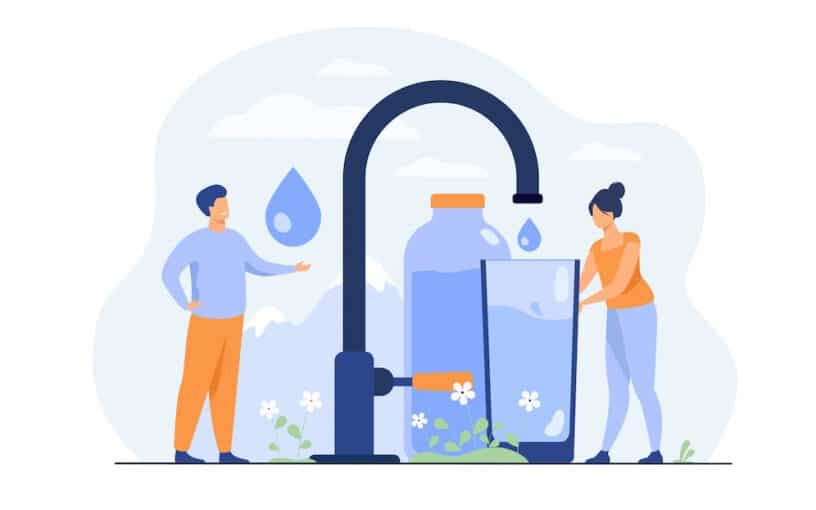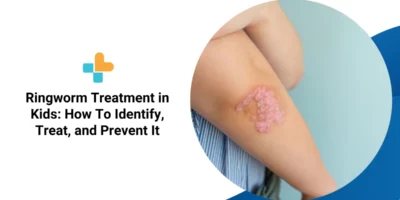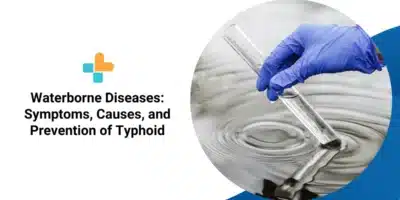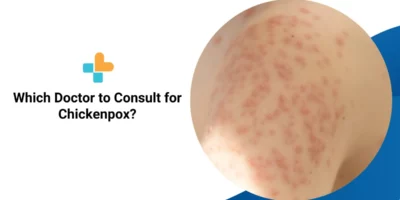Water is a vital biological solvent that regulates body temperature and is essential to maintain various bodily functions. It also transports nutrients to various parts of the body and prevents the body from dehydration. Day by day it is getting tougher for humankind to get access to fresh drinking water. Proper management of water resources is important to supply clean and safe drinking water to the people. Contaminated water can increase the risk of water borne diseases to a larger extent.
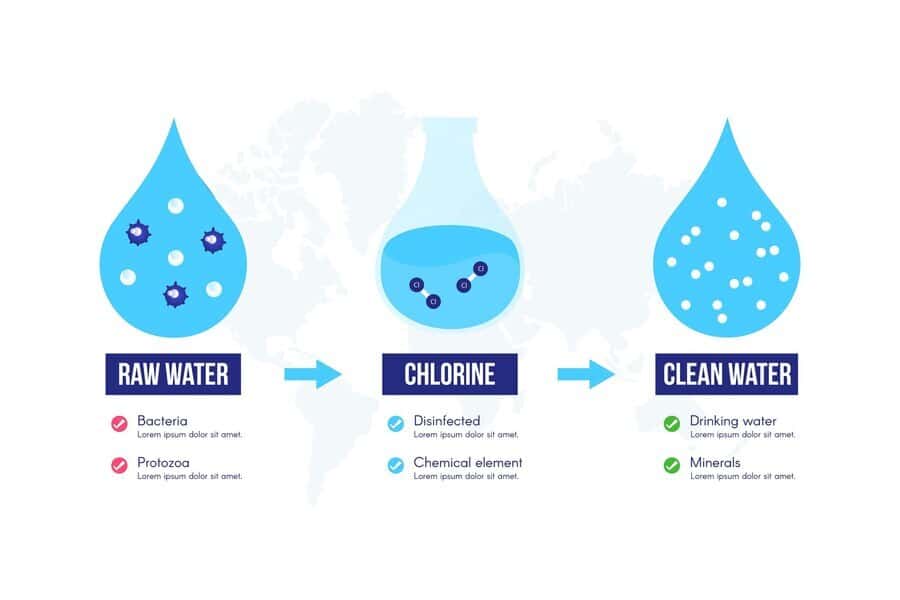
The water we drink undergoes various processes before it reaches us. A specific purification process is done to destroy the microbial pathogens in the water. However, steps taken during the process of purification are sometimes not effective to treat the water before it reaches us for drinking purposes. Polluted water can be deadly and can increase the risk of various water borne diseases that can further cause serious health issues.
What are water borne diseases?
Water borne diseases are caused by microorganisms that are transmitted by contaminated water. Typically they are caused by microbes like bacteria, protozoa, viruses, and parasites. The pathogenic microorganisms contaminate water and can develop serious illnesses that show a significant impact on health.
Some of the most common water-borne diseases are as follows:
Cholera: Cholera is an infectious disease that is caused by drinking contaminated water. Although it often occurs with mild or no symptoms, gradually cholera can develop as a severe, life-threatening disease. Some of the common sources of cholera are drinking unsafe water from a municipal supply, consuming drinks and unhygienic foods from street vendors, consuming vegetables grown unhygienic, or water polluted with human wastes.
Symptoms of Cholera:
- Diarrhea
- Dehydration
- Vomiting
- Muscle cramps
- Low blood pressure
- Thirst
Typhoid: Typhoid fever is one of the common illnesses that is seen in areas where there is poor sanitation. It is highly contagious and spreads through unsafe water, contaminated food, and poor hygiene. Typhoid bacteria live in the intestines of humans and enter into the bloodstream. The transmission occurs when an individual comes in contact with the feces of the infected person.
Symptoms of typhoid
- Headache
- High fever
- Abdominal pain
- Diarrhea or constipation
- Weakness or fatigue
Diarrhea: Diarrhea is loose or watery stools that can occur due to infection in the gastrointestinal tract. The infection can occur due to bacteria, viruses, or any other parasitic organism. Drinking contaminated water and consuming unhygienic food can cause diarrhea. Sometimes, diarrhea can turn out to be a severe, life-threatening illness.
Symptoms of diarrhea
- Abdominal pain
- Severe abdominal cramps
- Altered bowel movements
- Dehydration
- Bloating
Amebiasis: Amebiasis is an intestinal infection caused by a protozoan parasite. It occurs by eating contaminated food or drinking contaminated water. The disease is spread when the stool of an infected person is contaminated with water. Amebiasis is commonly spread in areas where there is poor sanitation and hygiene. People with a weakened immune system, those who travel to places with poor sanitary conditions are at a higher risk of amebiasis.
Symptoms of Amebiasis
- Diarrhea
- Abdominal cramping
- Nausea
- Loss of appetite
- Stomach pain
- Fever
Hepatitis A: Hepatitis A is a type of liver infection that occurs due to the consumption of food or water. It can also be developed by coming in close contact with the person infected with hepatitis A. It is a short-lived liver infection that is highly contagious.
Symptoms of Hepatitis A
- Stomach upset
- Yellowing of skin or whites of the eyes
- Fever
- Diarrhea
- Joint pain
- Fatigue
Other diseases: Some of the other water-borne diseases are giardiasis, amoebic dysentery, shigellosis, etc. Water-borne diseases are a serious threat to children in developing nations.
Prevention of water borne diseases
Although complete protection from water-borne illnesses might not be possible, following certain hygienic practices can prevent the risk of water-borne diseases. Some of the preventive measures are:
- Wash the fruits and vegetables with clean water before consuming them
- Eat properly cooked food that is served hot
- Avoid drinking untreated and contaminated water, especially in areas with outbreaks of water borne diseases
- Drink chlorinated water that can prevent the risk of pathogens
- Avoid handling food with unclean hands to prevent the spread of infection
- Wash your hands thoroughly with soap and water before eating and after using the restroom
The effect of water borne diseases on human health is drastic in the long run. Although people can recover soon from water-borne illnesses, their impact remains for a few days where it makes a person feel lethargic and tough to cope with everyday tasks.
Rain and humidity make a perfect breeding ground for disease-causing pathogens making us vulnerable to diseases and infections during the monsoon season. If you are facing any symptoms mentioned above, consult an Ayu Health specialist online or offline at your comfort. To book an appointment call 08069489584 or visit www.ayu.health
Our Hospital Locations
General Surgery Hospitals in Chandigarh | General Surgery Hospitals in Bangalore | General Surgery Hospitals in Jaipur | General Surgery Hospitals in NCR | General Surgery Hospitals in Hyderabad
Our Doctors
General Surgery Doctors in Chandigarh | General Surgery Doctors in Bangalore | General Surgery Doctors in Jaipur | General Surgery Doctors in NCR | General Surgery Doctors in Hyderabad
About the Author

Dr. S. Goel
Dr. S. Goel is a renowned Internal Medicine Specialist currently practicing at Ayu Health, Bangalore. He is a Specialist in Internal Medicine, Diabetes HTN, Paediatric Care, and Family Medicine.

